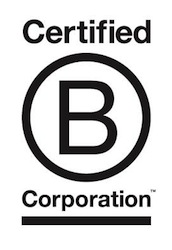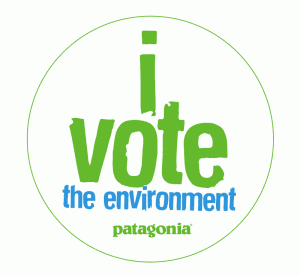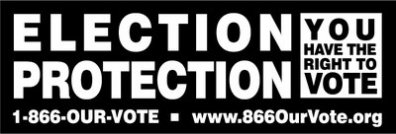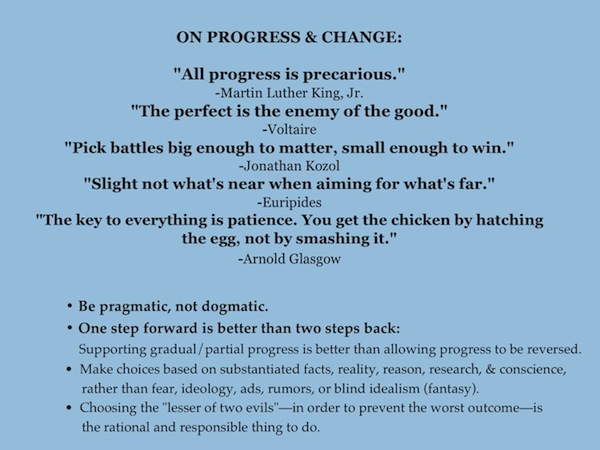This is a list of links to information resources related to sustainable agriculture, organic farming and gardening, and growing and buying good, safe food.
 These resources are organized into the following general categories (though some are relevant to more than one category): Organizations, Magazines and Blogs, Educational Programs, Funding & Investing, Permaculture, Urban Farms, Agri-Tourism / Farm Tours, International/Non-U.S. Initiatives, Films and Books.
These resources are organized into the following general categories (though some are relevant to more than one category): Organizations, Magazines and Blogs, Educational Programs, Funding & Investing, Permaculture, Urban Farms, Agri-Tourism / Farm Tours, International/Non-U.S. Initiatives, Films and Books.
At the end, you will find a few suggestions of simple ways to get involved in the good food movement.
Organizations
- Ag Innovations Network
- American Community Gardening Association
- ATTRA/NCAT National Sustainable Agriculture Information Service
- The Berry Center
- Beyond Pesticides
- Biodynamic [Farming and Gardening] Association
- CAFF: Community Alliance with Family Farmers
- CCOF Certified Organic
- California FarmLink
- California Sustainable Winegrowing Alliance
- Center for Food Safety
- Center for a Livable Future (Johns Hopkins)
- Cornucopia Institute
- EcoFarm (Ecological Farming Association)
- Environmental Working Group
- Fair Food Network

- Farm Aid
- Farmer Veteran Coalition
- Farmigo
- Food Democracy Now
- Food First: Institute for Food & Development Policy
- Food & Water Watch
- Food Routes Network (Buy Fresh Buy Local)
- The Food Trust
- Just Label It
- The Land Institute
- Land Stewardship Project
- Local Harvest
- Millions Against Monsanto
- National Farm to School Network
- National Sustainable Agriculture Coalition

- Non-GMO Project
- Organic Consumers Association
- Organic Farming Research Foundation
- Organic Seed Alliance
- Pesticide Action Network
- Rodale Institute
- Roots of Change
- Resilience.org: Food & Water section
- Seed Savers Exchange
- Slow Food USA
- Sustainable Agriculture Research & Education program
- Union of Concerned Scientists: Food & Agriculture program
- United Farm Workers (UFW)
Magazines and Blogs
- Mother Earth News: Organic Gardening, Real Food, and Homesteading sections
- City Farmer News
- Civil Eats
- Earth Eats
- The Ethicurean
- FarmShorts web videos
- Food Politics, by Marion Nestle
- Food Tank
- Livable Future blog

- Native Plants & Wildlife Gardens blog
- Seedstock
- Sustainable Table
- Tom Philpott’s articles and blog posts for Mother Jones magazine
Educational Programs
- Nourish: Food + Community
- Leave it Better
- The Lexicon of Sustainability
- Farm-Based Education Network
- Center for Land-Based Learning
- Permaculture Skills Center
- UC Santa Cruz Center for Agroecology and Sustainable Food Systems
- UC Davis College of Agricultural and Environmental Sciences
Funding and Investing
(including some crowdfunding sites)
- Credibles
- Cropmobster
- Farmland LP
- Foundation for Sustainability and Innovation
- Gatheround
- Natural Capital Investment Fund
- Root Capital
- Shade Fund
- Slow Money
Permaculture
[Partial list; please mention other groups in the Comments.]
- Grow Permaculture (formerly called the Permaculture Guild)
- Permaculture Institute
- Permaculture Skills Center (Sebastopol, CA)
- Regenerative Design Institute
- Urban Permaculture Institute of San Francisco
Urban Farms
[This is just a small selection; there are many, many more. Please mention other urban farms you are familiar with in the Comments.]
- Earthworks Urban Farm (Detroit)
- The Food Project (Massachusetts)
- Growing Power (Milwaukee)
- Homeless Garden Project (Santa Cruz)
- L.A. Green Grounds (Los Angeles)
- Petaluma Bounty (CA)
Agri-Tourism / Farm Tours
- Farm Stay U.S.
- Rural Bounty
- Planet2Plate
- California Agricultural Tourism Directory
- Bay Area Green Tours: Sustainable Agriculture Tour
- Marin Organic tours and events
- Also see Food Sovereignty Tours below.
International/Non-U.S. Initiatives
- Food Sovereignty Tours
- Groundswell International
- International Food Policy Research Institute
- La Via Campesina: International Peasants Movement
- Navdanya (India)
- Root Capital
- Seed Freedom
- Slow Food International
- Sustain: Alliance for Better Food & Farming (UK)
- Via Organica (Mexico)
Films and Books
Many films about food and farming have come out recently. One of the most recent is Symphony of the Soil.
There are also many books on these topics. One new one is called Farmacology: What Innovative Family Farming Can Teach Us About Health and Healing, by Daphne Miller, MD. Another recent book is Farmer Jane: Women Changing the Way We Eat, by Temra Costa.
I also recommend reading Barbara Kingsolver’s Animal, Vegetable, Miracle, as well as books by Wendell Berry, Michael Ableman, Michael Pollan, Frances Moore Lappe, Anna Lappe, and Marion Nestle.
For other relevant books, check out the offerings from Chelsea Green Publishing, Mother Earth News, and New Society Publishers.
Taking Part
You don’t have to be a farmer to be involved in sustainable agriculture and the good food movement. Here are just a few of the steps that almost anyone can take, to create a healthier family, healthier community, and a healthier planet:
- Buy organic, non-GMO, and locally grown foods whenever possible (from the grocery, a farmer’s market, local farms, a CSA, etc.) To find local farms, farmer’s markets, or food providers, go to LocalHarvest.org, and if you live in California or New York, check out Farmigo.com, which is basically an online Farmer’s Market or CSA for small or large groups.
- If/when you buy meat (from stores or at restaurants), avoid getting factory-farmed meats. Look for and ask for meats from grass-fed and grass-finished animals, that are free of antibiotics and added hormones, and that also, ideally, have third-party certifications (such as Animal Welfare Approved) verifying that the animals were raised and slaughtered humanely. Boosting the demand for such products will help shift the industry away from factory farming. (We’ll be adding a blog post with more information on humanely raised meat in the future.)
- Buy organic, non-GMO seeds and organically grown plants, and plant them in a kitchen garden, window boxes, porch pots, raised beds, a greenhouse, a community garden, or wherever you can. Use organic/natural rather than toxic chemical pesticides, herbicides, and fertilizers. It’s fun and satisfying to swap your surplus harvest with friends and neighbors.
- Replace water-intensive, conventional grass lawns with a garden, or no-mow native grasses or groundcovers. Choose low-water (drought-tolerant), native or adapted (climate-appropriate) plants and flowers, including those that attract and feed pollinators such as bees and butterflies.
Related posts:
How to Reduce Food Waste [NEW: November 2023]
Sustainable Agriculture in the Spotlight: Fresh films, books, etc. [August 2009]
Sustainable Ag: Marin and Sonoma County Resources
Recent Films with Green Themes: Food, farming, energy, etc. [2011]
Quotations for Gardeners, Farmers, and Others [MotherEarthNews.com blog]
Chocolates of Choice: Organic, Fair Trade, and Delicious










